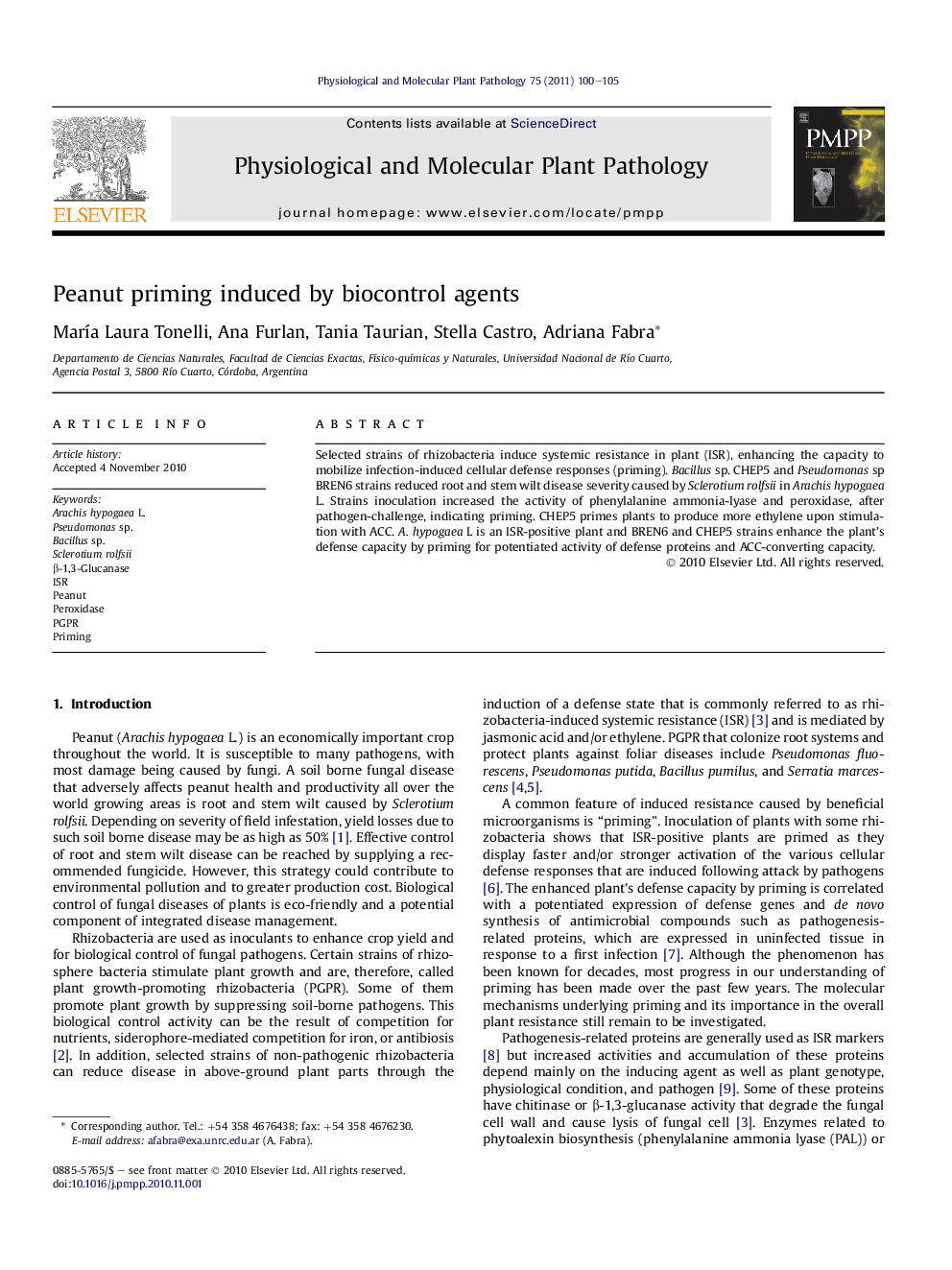| Article ID | Journal | Published Year | Pages | File Type |
|---|---|---|---|---|
| 2836593 | Physiological and Molecular Plant Pathology | 2011 | 6 Pages |
Selected strains of rhizobacteria induce systemic resistance in plant (ISR), enhancing the capacity to mobilize infection-induced cellular defense responses (priming). Bacillus sp. CHEP5 and Pseudomonas sp BREN6 strains reduced root and stem wilt disease severity caused by Sclerotium rolfsii in Arachis hypogaea L. Strains inoculation increased the activity of phenylalanine ammonia-lyase and peroxidase, after pathogen-challenge, indicating priming. CHEP5 primes plants to produce more ethylene upon stimulation with ACC. A. hypogaea L is an ISR-positive plant and BREN6 and CHEP5 strains enhance the plant’s defense capacity by priming for potentiated activity of defense proteins and ACC-converting capacity.
Research highlights► A. hypogaea L. (peanut) is an ISR-positive plant. ► ISR response protects peanut from root and stem wilt caused by S. rolfsii. ► ISR is associated with an enhanced capacity to convert ACC to ethylene in systemic tissues.
